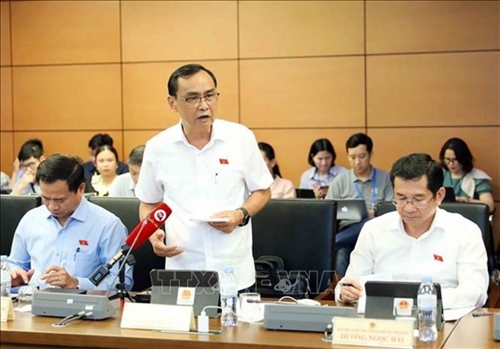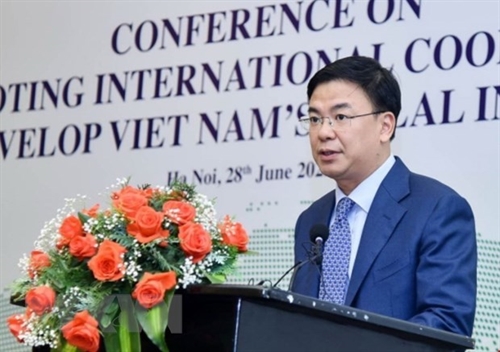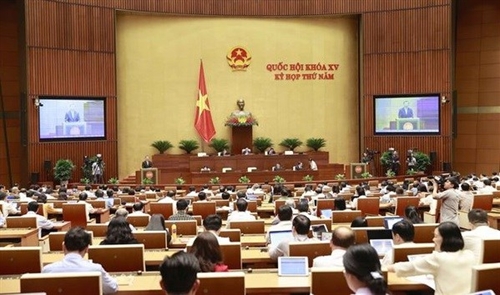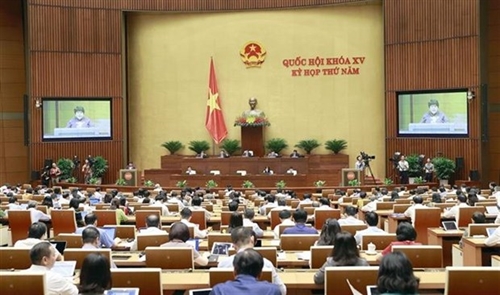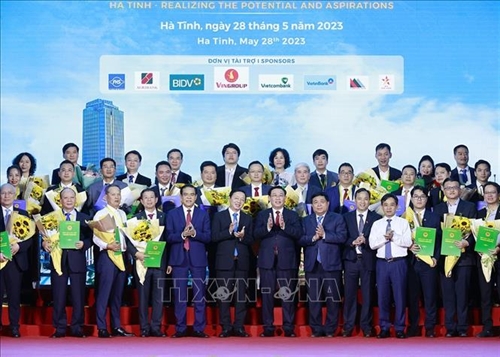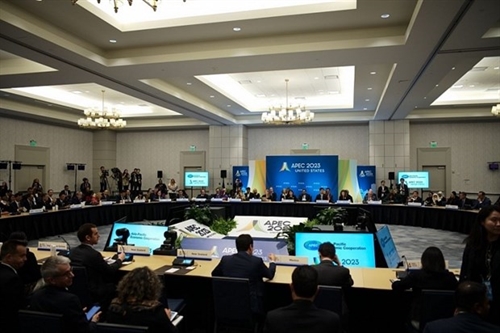Following the discussions on the results of the socio-economic development plan in 2022 and the first months of 2023 during the 15th National Assembly (NA)’s fifth plenary session, voters have highly valued the efforts that the Government and the Prime Minister have made in managing the national economy and speeding up economic recovery and development.
Nguyen Thuan Quang, a resident of Hanoi’s Cau Giay district, said that despite numerous difficulties in 2022, Vietnam still managed to maintain macro-economic stability and major economic balances, completing 13 out of 15 targets set for the year.
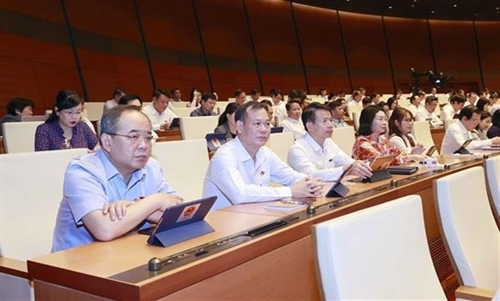 |
| NA deputies at the fifth plenary session__Photo: VNA |
Showing his concern about negative impacts of the Russia-Ukraine conflicts, high global inflation and petrol price hike on the domestic economy, Quang said he hopes to Government and the PM will seek measures to support businesses in recovering production, promote growth and ensure employment and incomes for laborers.
Meanwhile, Nguyen Phan Tien from Hanoi’s Gia Lam district held that human resources quality is key to socio-economic development.
He suggested the increase of State budget for education and the socialization of education with more support for private education facilities to ensure sustainable education development and social equality.
During the discussion on May 31, NA deputies gave many ideas on how to effectively implement the socio-economic development and State budget plan.
Ha Duc Minh, a deputy of Lao Cai province, pointed to the slow disbursement of capital for three national target programs in the 2021-25 period, which affects the efficiency of the programs.
Minh proposed that the NA and Government to consider the allocation of non-business capital to the programs for the entire period, like public investment, to localities so that they could be more proactive in planning and implementing the programs.
The deputy held that one of the major reasons behind the slow implementation of the programs is problems in ground clearance.
Alongside, the Government should direct relevant agencies to build a framework for evaluating the programs' results and effectiveness, laying a foundation for localities to assess their own performance in the work, he said.- (VNA/VLLF)

